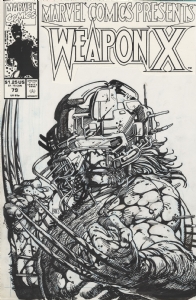Popeye Daily with Eugene the Jeep March 30, 1937
Artist: Elzie Crisler Segar (All)
0 Comments - 1,122 Views - 0 Like
Artwork Details
|
DescriptionAbout Reserve Prices at Auctions. ContinuedIssues could also arise over the law which governs auctions held in one jurisdiction by companies incorporated in another. The law governing the venue likely controls. All of this is rather straightforward insofar as auction laws are concerned, but there are other relevant considerations based on more general provisions of contract and agency law. Auctions typically involve the relationships between three parties, the seller (consignor to the auction house), the buyer (successful bidder at the auction), and the auction house itself. Every auction catalogue that I have ever read states that the auction house acts as the agent for the sellers/consignors and not as an agent for buyers. This is important because a contract generally imposes a condition that parties to the contract owe an obligation of "good faith and fair dealing" to other e parties to the contract. Such a fiduciary duty exists regardless of any statutes which otherwise govern obligations in connection with auctions. So, just as a possible auction scenario, what happens if an auction house were to give advances of money to consignors in order to induce people with goods to consign items to the auction house for sale at auctions which will not take place until weeks or months in the future. One of the main advantages of selling to dealers instead of consigning to auctions is that a dealer pays for a piece of art immediately, which can be important to a seller in need of quick cash. When an auction house not only offers a reserve amount, which protects a seller from his art being sold for a low amount, but also immediately advances money against any final amount that is expected to be realized at a future auction, it is hard for a dealer or private purchaser to compete. But there have to be contractual terms in connection with such consignments which spell out the rights of a consignor and an auction house if the art does not receive a bid equal to or greater than the agreed amount for the reserve. If the consignment contract were to merely provide that art which does not sell because the reserve price isn't met is returned to the consignor and the consignor must repay all amounts advanced by the auction house, the auctioneer would have no quick and inexpensive means to recover the money they advanced -- they would have to sue consignors who didn't honor their obligations to pay back the advanced amounts. An alternative would be to allow the auction house to take title to the art which didn't sell in satisfaction of any advances when the consignor couldn't immediately pay back the advances with cash. But if this were the remedy for repayment of advances, there is a potential for conflicts of interest and violations of the covenant of good faith and fair dealing. Most consignors, especially those without legal backgrounds, would be at a disadvantage to auction houses when it came to setting reserve prices, which would assume greater importance than they do when no advances are made. If an auction house is secure due to their having a monetary interest in the art itself, it is likely to be less concerned about reserve amounts requested by consignors. As long as the art is clearly worth the amount of any advances, the auction house can't really lose. In fact, they might be better off if a reserve is so high that the art is unlikely to sell, since ownership would transfer to the auction house for a small amount, i.e., the amount of cash actually advances. This is why those auction houses which actually give advances only advance a small percentage of the amount which can reasonably be anticipated from a successful sale. But most consignors are hopeful that their art will sell for some huge amount and many want the reserve to be high to ensure that it isn't "stolen" by some bidder. As long as a small percentage of value is advanced, the auction house protects its own interests, entices potential consignors to give them the art to sell, and can set up a situation where they violate their contractual obligations by placing their own interests above those of their consignors. If the auction house allows their consignors to demand high reserves, especially when no estimates are given of amounts that are likely to be achieved at auction, it can also result in prospective bidders being encouraged to participate in bidding on the art without having much chance of winning the art for a reasonable amount, let alone a bargain price. Without being privy to the consignment contract between the auction house and the consignor, it can be very difficult for a potential bidder to determine his chances of successfully purchasing a piece of art and whether he should even bother bidding. These, of course are just possible aspects of auctions which might occur and considerations which art buyers might wish to consider. Social/Sharing |
About the Owner
|
Contact the OwnerUse can use a contact form to send an email to this gallery owner,
|
Comments on this Artwork
You must be logged in to make comments.

Latest Updates
All |
|
Auctions ADVERTISEMENT
 |
Auctions
| Paul Coker Jr. MAD Spot Illustrations Original Art |
Auctions
 |
BARRY WINDSOR-SMITH MARVEL COMICS PRESENTS #79 COVER (SOLD FOR $320K) |
Auctions
 |
John Byrne - Iron Fist #11, Page 17 |
Hakes Auctions
 |
STAR WARS WEEKLY #20 COMIC BOOK COVER ORIGINAL ART BY TONY DeZUNIGA. |






Subscribe to the YouTube Channel.. FREE!
1 Accepting Commissions
Commission an Artist
For Sale Updates
Classified Updates |
|
P A9/6/2025 8:33:00 AM |
|
Rene Dorenbos9/6/2025 5:20:00 AM |
|
Monty B9/5/2025 3:53:00 PM |
|
Saxa Luna Galianan9/5/2025 1:01:00 PM |
|
Will Gabri-El9/5/2025 12:25:00 PM |
|
Michele M9/5/2025 12:05:00 PM |
|
Dealer Updates |
|
Coollines Artwork9/5/2025 9:24:00 PM |
|
Koch Comic Art9/5/2025 7:54:00 PM |
|
Anthony's Comicbook Art9/5/2025 6:43:00 PM |
|
Will's Comic Art Page9/5/2025 12:25:00 PM |
|
Essential Sequential9/5/2025 12:15:00 PM |
|
Achetez de l'Art9/5/2025 12:15:00 PM |
|
|
|






